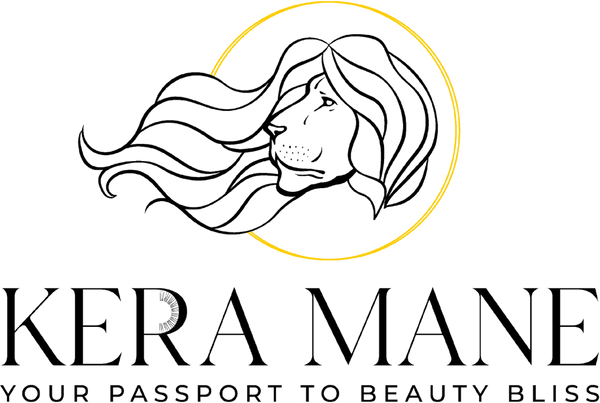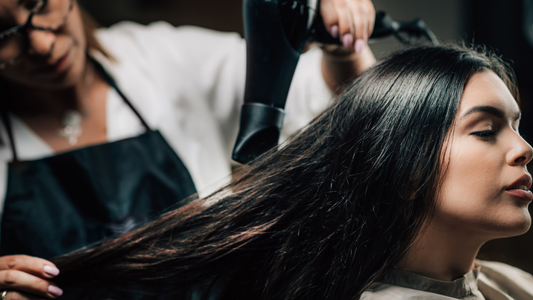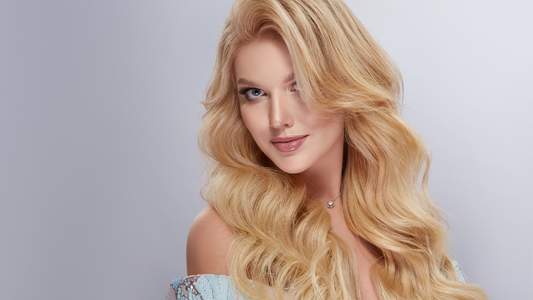Preservatives are a common ingredient in many beauty products, including keratin treatments. They play a critical role in preventing the growth of bacteria, mold, and other harmful microorganisms, which could otherwise degrade the product and pose health risks to users. However, there is growing concern about the potential side effects of certain preservatives used in hair care products, particularly when it comes to long-term health and environmental impact.
In this article, we’ll dive into the role of preservatives in keratin treatments, examine their safety profiles, and explore safer, more natural alternatives. We’ll also look at how Kera Mane Keratin Hair Treatment offers an effective solution with fewer risks, ensuring your hair stays smooth and healthy without exposure to harmful chemicals.
Why Are Preservatives Used in Keratin Treatments?
Keratin treatments, like most hair care products, have a shelf life. They contain a combination of proteins, water, oils, and other ingredients that can create the perfect environment for bacteria, mold, and yeast to thrive. Preservatives are added to these formulas to extend their shelf life and ensure that they remain safe to use over time.
The Role of Preservatives:
- Preventing Contamination: Preservatives prevent the growth of harmful microorganisms that can spoil the product, reducing the risk of skin infections or allergic reactions.
- Extending Shelf Life: Preservatives keep the product stable and usable for longer periods, ensuring that it remains effective throughout its intended lifespan.
- Protecting Product Integrity: By preventing microbial growth, preservatives also help maintain the effectiveness of key ingredients in the product, such as keratin proteins and nourishing oils.
While preservatives serve an essential function in maintaining the safety and efficacy of keratin treatments, not all preservatives are created equal. Some can be harsh and potentially harmful, raising concerns about long-term health risks.
Common Preservatives Used in Keratin Treatments
There are several types of preservatives commonly used in hair care products, including keratin treatments. While some are considered safe, others have raised concerns due to their potential to cause skin irritation, allergic reactions, or even long-term health issues.
1. Parabens
- What They Are: Parabens, such as methylparaben and propylparaben, are synthetic preservatives widely used in cosmetics and hair care products to prevent the growth of bacteria and fungi.
-
Safety Concerns:
- Parabens have been linked to potential hormone disruption, as they can mimic estrogen in the body. This has raised concerns about their long-term effects on human health, including a possible link to breast cancer.
- They can also cause skin irritation or allergic reactions in some individuals, particularly those with sensitive skin.
- Environmental Impact: Parabens are non-biodegradable and have been detected in water systems, raising concerns about their potential impact on aquatic ecosystems.
2. Formaldehyde-Releasing Agents
- What They Are: Formaldehyde-releasing agents, such as DMDM hydantoin, quaternium-15, and imidazolidinyl urea, are used in some keratin treatments to prevent microbial growth. Over time, these agents slowly release formaldehyde into the product.
-
Safety Concerns:
- Formaldehyde is a known carcinogen and can cause respiratory issues, skin irritation, and eye discomfort when released during keratin treatments.
- Even in low concentrations, formaldehyde-releasing agents can cause long-term health concerns, especially with repeated exposure.
- Why They’re Used: Despite these risks, formaldehyde-releasing agents are still found in some hair care products due to their effectiveness in preserving the formula.
3. Phenoxyethanol
- What It Is: Phenoxyethanol is a widely used preservative in cosmetics and personal care products. It’s often considered a safer alternative to parabens and formaldehyde-releasing agents.
-
Safety Concerns:
- While phenoxyethanol is generally regarded as safe in low concentrations, it can still cause skin irritation or allergic reactions in some people, particularly those with sensitive skin.
- There are also concerns that phenoxyethanol may have negative effects on the nervous system with excessive use, though research on this is still ongoing.
- Environmental Impact: Phenoxyethanol is less harmful to the environment compared to other preservatives but can still accumulate in water sources, potentially affecting aquatic life.
Are Preservatives Necessary in Keratin Treatments?
Preservatives are essential for ensuring the safety and longevity of keratin treatments. Without them, products would spoil quickly, potentially leading to bacterial contamination that could harm your hair and scalp. However, it’s important to strike a balance between effectiveness and safety.
Why Some Preservatives Are Necessary:
- Microbial Growth: Without preservatives, bacteria, mold, and fungi could thrive in products that contain water and organic ingredients.
- Shelf Stability: Preservatives help extend the shelf life of keratin treatments, ensuring that they remain safe and effective over time.
- Consumer Safety: Preservatives protect consumers from potentially dangerous contaminants that can cause infections or allergic reactions.
However, not all preservatives are safe for long-term use, and it’s important to choose products that use gentle, non-toxic alternatives whenever possible.
Safer Alternatives to Harmful Preservatives
As concerns over certain preservatives have grown, many companies are now focusing on developing products with safer, natural alternatives. These alternatives aim to provide the same preservative benefits without the associated health risks.
1. Natural Preservatives
- Examples: Grapefruit seed extract, rosemary extract, and tea tree oil are commonly used natural preservatives with antimicrobial properties.
-
Benefits:
- These natural preservatives help prevent microbial growth without introducing harsh chemicals into the product.
- They are generally safer for sensitive skin and pose less risk of irritation or allergic reactions.
- Limitations: While natural preservatives can be effective, they may not provide the same long-lasting shelf life as synthetic preservatives, requiring products to be used more quickly.
2. Sodium Benzoate and Potassium Sorbate
- What They Are: Sodium benzoate and potassium sorbate are widely regarded as safe, non-toxic preservatives. They are often used in food products and cosmetics to prevent the growth of mold and yeast.
-
Benefits:
- Both sodium benzoate and potassium sorbate are considered safe for human use and have a low risk of causing irritation or allergic reactions.
- They are also less harmful to the environment compared to parabens or formaldehyde-releasing agents.
- Limitations: These preservatives may not be as effective at preventing bacterial growth as harsher chemicals, so they are often used in combination with other natural preservatives.
3. Leuconostoc/Radish Root Ferment Filtrate
- What It Is: Derived from fermented radish roots, this natural preservative has antimicrobial properties and is used to extend the shelf life of cosmetic and hair care products.
-
Benefits:
- This natural preservative is effective against bacteria, mold, and yeast while being gentle on the skin.
- It’s a natural alternative that is both safe for human use and environmentally friendly.
Kera Mane Keratin Hair Treatment: A Safer, Balanced Formula
At Kera Mane, we understand the importance of using safe, non-toxic ingredients in our keratin treatment. That’s why we’ve developed a formula that provides all the benefits of professional-grade keratin smoothing without exposing you to harmful preservatives.
How Kera Mane Stands Out:
- Formaldehyde-Free and Paraben-Free: Our formula is completely free from formaldehyde, parabens, and other harsh preservatives that can compromise your health.
- Balanced Preservation: We use safer, gentle preservatives that extend the shelf life of our product without causing irritation or long-term health concerns.
- Natural Ingredients: Kera Mane is enriched with natural oils like argan and coconut oil, along with plant-based keratin to provide both nourishment and smoothness, making it a healthy choice for your hair.
- Sulfate-Free: Our formula is free from sulfates, ensuring that your keratin treatment lasts longer while keeping your hair and scalp healthy.
How to Choose the Right Keratin Treatment
When choosing a keratin treatment, it’s essential to read the ingredient list carefully and opt for products that use gentler preservatives. Here are a few tips for selecting the safest option:
- Avoid Formaldehyde and Parabens: Always choose a formaldehyde-free and paraben-free keratin treatment, like Kera Mane, to avoid the risks associated with these chemicals.
- Look for Natural Preservatives: Opt for treatments that use natural preservatives like grapefruit seed extract or tea tree oil. These are effective against microbial growth without the side effects of synthetic preservatives.
- Check for Sulfate-Free Formulas: Sulfates can strip your hair and scalp of natural oils, weakening the hair and reducing the longevity of your keratin treatment. Always opt for sulfate-free products for the best results.
Conclusion
Preservatives play a crucial role in ensuring the safety and longevity of keratin treatments, but not all preservatives are created equal. While some can be harmful, there are safer, natural alternatives available that provide the same benefits without compromising your health. Kera Mane Keratin Hair Treatment is formulated with your safety in mind, offering a formaldehyde-free, paraben-free, and sulfate-free solution that nourishes and protects your hair while delivering lasting smoothness.
By understanding the role of preservatives and choosing products that use gentler, non-toxic alternatives, you can enjoy the benefits of keratin treatments without the risks.




